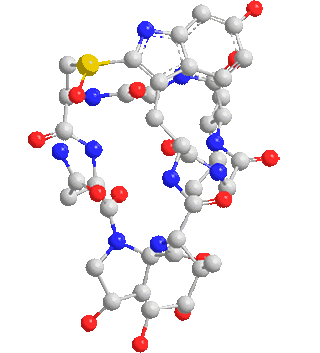_Part of endohedral nanostructures
Self-assembly (nanoparticles) of nanostructure in endohedral nanostructures is a spontaneous process by which nano/nanophases are transformed into organized functions.
Researcher and author: Dr. ( Afshin Rashid)
_r3zu.gif)
Note: Nanostructure is defined as any structure with one or more dimensions and is measured in the range of nanometer scale.
Nanostructures refer to materials or structures that have at least one dimension between 1 and 100 nanometersThe importance of nanoscale is in changing the properties and characteristics of materials in these dimensions. Properties such as electrical conductivity, electromagnetic properties, etc. Starting to change the properties of the material by shrinking it depends above all on the type of material and the desired property. For example, by shrinking the dimensions of a material, generally some of the electromagnetic properties of nano-molecular materials such as the conductivity of nano particles in materials are improved. This increase in strength does not happen only in the range of a few nanometers, and the strength of materials of several tens or even hundreds of nanometers may be much higher than the mass material of a large scale. On the other hand, the change of some properties such as conductivity in nano-transistors and electromagnetic properties in nano-wires may occur in dimensions of only a few nanometers.
Self-assembly (nanoparticles) in nanostructures is a spontaneous process by which nanomolecules/nanophases are transformed into organized functions. Two important types of nanostructures are conductive nanoparticles (finely structured particles, often semiconducting materials) and CNTs (tiny tubes, usually of pure carbon).

Self-assembled nanoparticles made of semiconductors change nanostructures depending on their scale size. CNT carbon nanotubes can transmit large amounts of electric current, much more than graphene nanowires and nanoribbons. In general, self-assembly in nanostructures increases the nanoelectromagnetic interaction (nanoparticles) in conductive nanomaterials. And it becomes semiconductors.
Conclusion:
In describing nanostructures, it is necessary to distinguish between the number of dimensions in the volume of an object that is on the nanoscale. The surfaces of nanostructures have a nanoscale dimension. Nanoscale spherical nanoparticles have three dimensions , that is, the magnifier of each spatial dimension is between 0.1 and 100 nm. The terms self-assembly in nanostructures are often used synonymously, although this function can also reach the micrometer range



